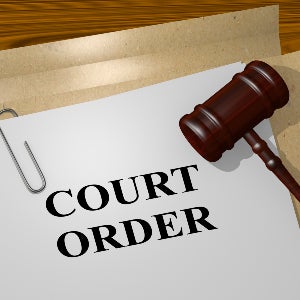- Supreme Court rules 6-3 to restrict lower courts from issuing nationwide injunctions.
- Ruling leaves open the fate of Trump’s order to end birthright citizenship.
- Justice Barrett authored the majority opinion; liberal justices dissented.
- Justice Sotomayor delivered her dissent from the bench, underscoring her opposition.
- Attorney General Pam Bondi and Trump both hailed the ruling as a victory.
The Lead
The U.S. Supreme Court on Friday granted a partial stay of multiple nationwide injunctions that had blocked President Donald Trump’s executive order seeking to end birthright citizenship for children born to undocumented immigrants. The 6–3 decision, authored by Justice Amy Coney Barrett, marks a significant shift in judicial authority and a partial victory for the Trump administration.
The Ruling
In its majority opinion, the Court did not weigh in on the constitutionality of Trump’s executive order but focused instead on the legal power of lower court judges. According to Associated Press, the Court ruled that district judges lack the authority to issue nationwide injunctions affecting federal policy, a practice long criticized by Trump and his allies.
Source: Pam Bondi on X
Trump Reacts on Truth Social
President Trump celebrated the Court’s decision as a “GIANT WIN,” claiming that even the “Birthright Citizenship Hoax” had been indirectly impacted by the ruling. In a post on Truth Social, Trump reiterated his stance that the 14th Amendment was intended for the children of enslaved individuals, not those born to undocumented immigrants. He also praised members of his legal team:
Source: Donald J. Trump on Truth Social
Birthright Citizenship Still Unresolved
The ruling does not provide clarity on whether Trump’s executive order to deny automatic citizenship to U.S.-born children of undocumented immigrants will ultimately stand. The constitutional question was explicitly left unanswered by the justices. As birthright citizenship is rooted in the 14th Amendment, any effort to overturn or alter that provision would likely require further judicial review or legislative action.
“What does this mean for birthright citizenship? That’s unclear,” the Associated Press noted in its reporting, emphasizing that the ruling affects judicial procedures, not substantive immigration law.
Dissent from the Bench
Justice Sonia Sotomayor delivered a rare dissenting opinion from the bench, underscoring her strong disagreement with the majority. Her move signaled the significance of the issue and her belief that the Court’s decision risks enabling executive overreach without adequate judicial checks.
Background
Birthright citizenship — the legal principle that grants citizenship to anyone born on U.S. soil — has been a fixture of American law since the 14th Amendment was ratified after the Civil War. Trump’s order challenges that tradition by targeting children born to parents in the country illegally, part of a broader strategy to reshape U.S. immigration law.
What’s Next
The Supreme Court’s decision to limit nationwide injunctions may influence future litigation against federal policies by compelling plaintiffs to seek narrower, regional rulings. Meanwhile, legal challenges to Trump’s birthright citizenship order will continue to wind through the courts, likely returning to the high court in a future term.
(with inputs from the Associated Press, Truth Social, and social media statements)
A global media for the latest news, entertainment, music fashion, and more.














